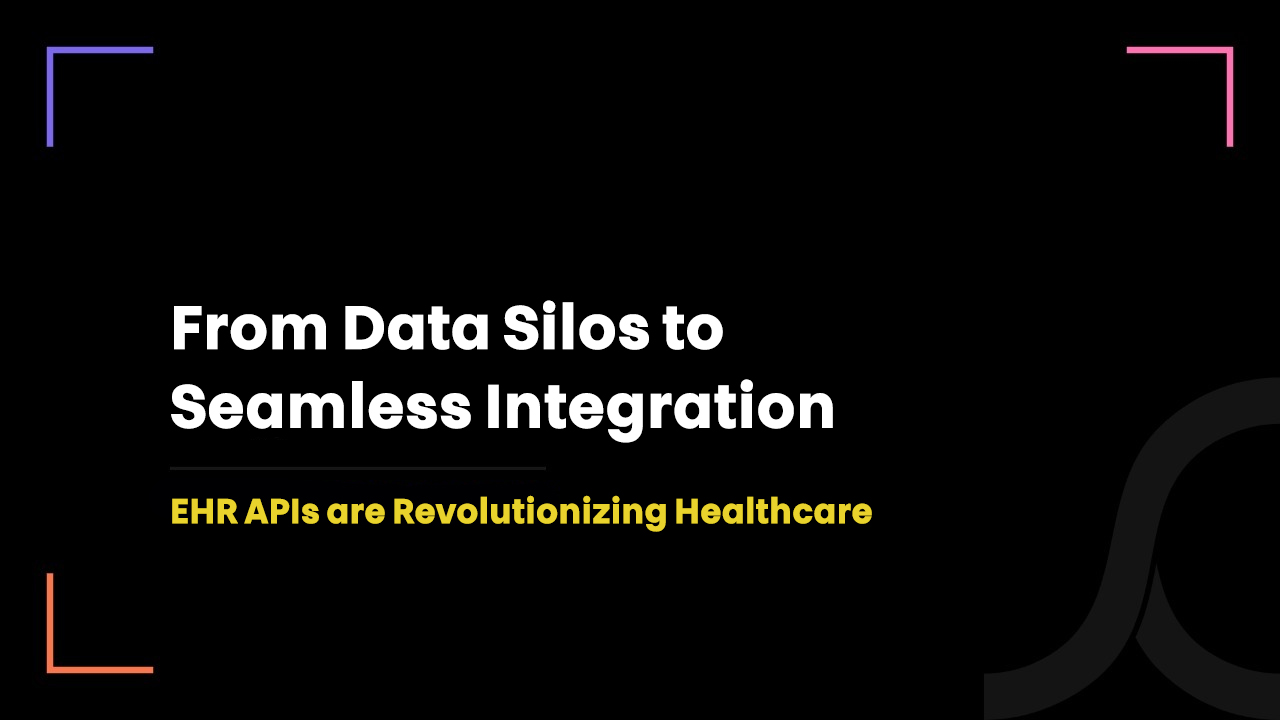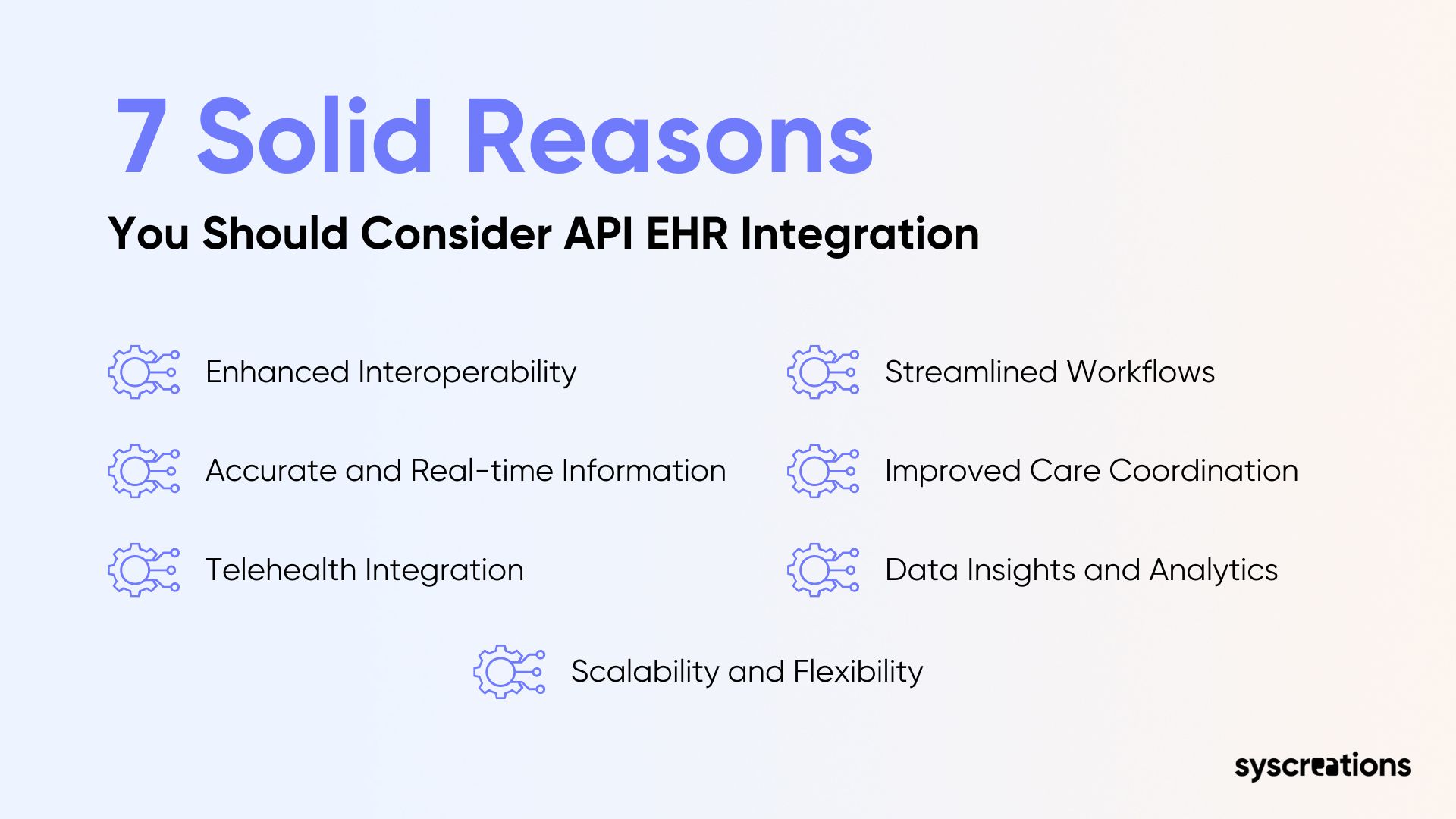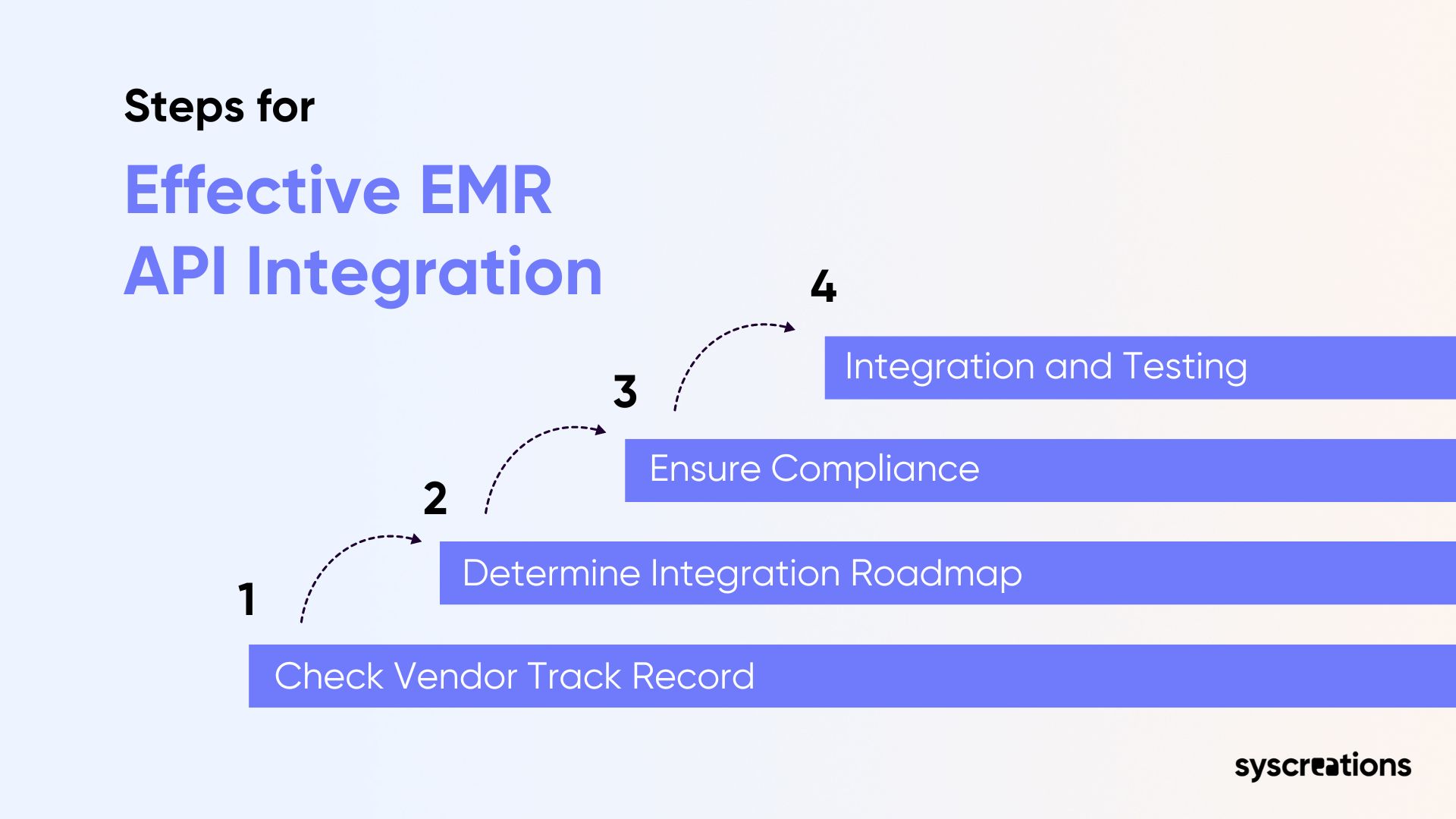Connecting Systems, Empowering Care: The Importance of Cutting-Edge EHR Integration APIs

11 months ago
Today, healthcare organizations are constantly seeking innovative ways to streamline their operations and enhance patient care.
One such technology that has revolutionized the healthcare landscape is the Electronic Health Record (EHR) system.
However, integrating EHRs with existing systems and applications can be a complex and challenging process.
Cutting-edge EHR integration API solutions come to your aid here.
Understanding EHR Integration API Solutions
API (Application Programming Interface) solutions play a vital role in simplifying EHR integration by providing standardized methods for different software applications to communicate and exchange data seamlessly.
These APIs act as bridges between disparate systems, allowing them to work together harmoniously.
Cutting-edge EHR integration API solutions offer a range of capabilities and features that enhance interoperability and transform healthcare organizations' workflows.
You must also read: A Detailed Guide to Healthcare API
7 Solid Reasons You Should Consider API EHR Integration

1. Enhanced Interoperability
EHR API integration breaks down data silos and enables interoperability, allowing healthcare providers to access and share patient information across various platforms.
This interoperability enhances care coordination, improves efficiency, and promotes better patient outcomes.
2. Streamlined Workflows
Integrating EHR systems with other healthcare applications streamlines workflows and reduces administrative burdens.
EHR API integration eliminates manual data entry, reduces errors, and saves valuable time for healthcare professionals by automating
- Appointment Scheduling
- Patient Registration
- Billing Procedures
This enables them to focus more on delivering quality care to patients.
3. Accurate and Real-time Information
Real-time access to accurate patient information is vital for healthcare providers.
EHR API integration ensures that clinicians have access to the most up-to-date patient data at the point of care.
This includes
- Medical history
- Diagnoses
- Medications
- Allergies
- Treatment plans
The availability of this information helps healthcare professionals make informed decisions, avoid adverse events, and deliver personalized care.
4. Improved Care Coordination
EHR API integration enables seamless care coordination among different healthcare providers involved in a patient's treatment.
When EHR systems are integrated with other healthcare applications used by specialists, hospitals, laboratories, and pharmacies, relevant patient data can be shared promptly.
This promotes effective communication, reduces duplicate tests or procedures, minimizes errors, and facilitates smoother care transitions.
5. Telehealth Integration
With the rise of telehealth services, EHR API integration becomes even more crucial.
Integrating EHRs with telehealth platforms allows for bi-directional data exchange.
It ensures that the data collected during virtual visits is seamlessly incorporated into the EHR.
This integration supports continuity of care, enables remote monitoring, and allows healthcare providers to have a comprehensive view of a patient's medical history regardless of the care setting.
6. Data Insights and Analytics
EHR API integration opens up opportunities for advanced data analytics and insights.
By aggregating data from different sources, including EHRs, clinical systems, and wearables, healthcare organizations can analyze large datasets to identify trends, patterns, and potential areas for improvement.
These insights can drive evidence-based decision-making, improve population health management, and optimize resource allocation.
7. Scalability and Flexibility
EHR API integration offers scalability and flexibility to healthcare organizations.
As technology and healthcare systems evolve, API solutions can adapt and accommodate changes.
They allow for the seamless integration of new applications and systems into the existing EHR infrastructure, ensuring that healthcare organizations can easily incorporate emerging technologies and stay at the forefront of healthcare innovation.
Steps for Effective EMR API Integration

As the offered services impact the type of software used, the integration goals of the organization depend on it.
The following steps can be taken for successful API integration:
1. Check Vendor Track Record
Checking the company's track record plays a crucial role when it comes to integration.
Some important factors to consider are:
- Portfolio
- Clientele
- Customer reviews
- Tech support availability
These factors determine the reliability of the company and may impact the integration processes.
2. Determine Integration Roadmap
The integration process depends on the type of software platforms to be integrated.
By assessing the technical requirements, you can get time and cost estimation of the integration.
You may also consider adding new software platforms to be integrated in the near future.
3. Ensure Compliance
Confidential information is going to be exchanged when you integrate different medical software platforms.
It becomes vital to ensure that all the solutions and APIs comply with government regulations.
Compliance is a crucial part of any healthcare integration.
4. Integration and Testing
The integration process gets carried out in this step.
By testing the system, you can ensure seamless data exchange.
Testing is usually conducted to ensure regulatory compliance and seamless operation.
The cornerstone of Technology Expansion - Ease of Interoperability
The adoption of new technologies in healthcare is bound to usher in major changes.
Patient data is at the core of technologies like
- Telehealth
- Data Analytics
- IoT Devices
Hence, EHR software needs to be upgraded to ensure future integrations.
We provide you with healthcare IT solutions that provide you with ease of integration as well as usage.
We’re an Ontatio-based healthcare IT company.
We have been delivering effective and efficient solutions for the healthcare industry for the past decade.
We deliver peace and not just product with our in-house team consisting of compliance experts well-versed in healthcare regulations like HIPAA, PHIPA, and PIPEDA.
The vital specification of API building is the HL7 and FHIR standards of interoperability and operations will be taken care of by our in-house HL7 and FHIR certified specialists.
You will just have to get in touch with us and let us take care of the rest.
